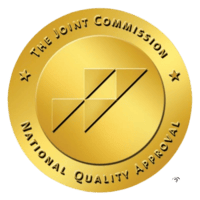Starting on the path of drug or alcohol withdrawal is a significant step towards healing, requiring substantial mental readiness. Recognizing the complex nature of withdrawal, which includes both physical unease and emotional upheaval, is essential. Arming oneself with mindfulness practices, such as meditation and deep breathing, can reduce stress and anxiety. Additionally, the creation of a strong support system is vital for emotional strength. But how can one effectively manage these components to guarantee a more seamless shift? The solution lies in nurturing self-kindness and strength, empowering individuals to confront the unavoidable obstacles with assurance and dignity.
Understand the Withdrawal Process
Understanding the withdrawal process is a crucial step for anyone considering entering an alcohol or drug abuse program. Withdrawal is the body’s response to the sudden cessation of substance use, and recognizing physical symptoms is essential for navigating this challenging phase. Symptoms can vary widely depending on the substance, frequency of use, and individual physiology. Common physical symptoms include nausea, tremors, sweating, and in severe cases, seizures. Awareness of these symptoms can aid in mental preparation, enabling individuals to anticipate the challenges they may encounter.
Mental preparation is equally important for a successful withdrawal experience. Developing a clear understanding of the withdrawal process can help set realistic expectations and reduce anxiety. Evidence suggests that being mentally prepared can significantly alleviate the distress associated with withdrawal. Engaging in pre-treatment counseling or educational sessions can provide valuable insights into the withdrawal process, fostering a sense of control and empowerment. Professional guidance throughout this phase is indispensable. Medical supervision ensures that withdrawal is managed safely and effectively, mitigating potential complications. By recognizing physical symptoms and preparing mentally, individuals can approach the withdrawal process with confidence, laying a strong foundation for their recovery journey.
Recognize Emotional Challenges
While acknowledging the physical aspects of withdrawal, it is equally important to recognize the emotional challenges that accompany this process. Withdrawal often triggers a complex emotional landscape characterized by anxiety, depression, irritability, and mood swings. Understanding these emotional challenges can help individuals prepare for the journey ahead, fostering emotional resilience and effective coping strategies. Research indicates that emotional resilience is an essential component in overcoming withdrawal. Building emotional resilience requires recognizing and accepting emotions via mindfulness practices, journaling, or creative outlets. These activities allow processing feelings, providing a foundation for emotional stability.
Equally significant are coping strategies, which empower individuals to manage their emotions constructively. Techniques such as cognitive-behavioral therapy (CBT) and relaxation exercises can help reframe negative thoughts and reduce stress. Practicing self-compassion and setting realistic expectations also play a critical role in maintaining emotional equilibrium. By embracing these strategies, individuals can enhance their ability to navigate the emotional complexities of withdrawal, ultimately contributing to a more successful recovery journey.
Develop a Support Network
Establishing a strong support system is a fundamental component in preparing for the challenges of drug or alcohol withdrawal. It provides emotional stability, practical assistance, and motivation needed to navigate this difficult period. Peer support is a valuable element, offering camaraderie through shared experiences. Engaging with others who have faced similar struggles can foster a sense of belonging and understanding, vital during withdrawal. Groups such as Alcoholics Anonymous (AA) or Narcotics Anonymous (NA) offer structured peer support environments where individuals can share their journeys and gain insights from others.
Family involvement is another vital aspect of a robust support network. Family members can offer love, encouragement, and accountability, creating a safety net that helps prevent relapse. Their understanding and empathy can greatly impact recovery outcomes, making it easier to face withdrawal symptoms. It’s important to communicate openly with family about your needs and boundaries during this process. Research underscores the effectiveness of support networks in addiction recovery, highlighting that individuals with strong social support are more likely to maintain abstinence. Hence, cultivating a network of supportive peers and family members is a strategic step towards successful withdrawal and long-term recovery.
Practice Mindfulness Techniques
In addition to cultivating a thorough support network, integrating mindfulness techniques into your daily routine can greatly aid the process of drug or alcohol withdrawal. Mindfulness practices, such as deep breathing and meditation, offer a structured approach to managing the emotional and physical discomfort associated with withdrawal symptoms. These techniques are grounded in evidence-based research, highlighting their effectiveness in enhancing psychological resilience and reducing stress. Deep breathing is a simple yet powerful tool that can be practiced anywhere. By focusing on slow, deliberate breaths, individuals can activate the body’s relaxation response, which counteracts the stress-induced fight-or-flight response commonly triggered during withdrawal.
Similarly, engaging in a regular meditation practice can provide significant benefits. Meditation encourages a heightened state of awareness and acceptance, allowing individuals to observe their thoughts and emotions without judgment. This awareness facilitates a deeper understanding of emotional triggers and aids in developing healthier coping mechanisms. Consistent meditation practice has been shown to improve mood, enhance concentration, and promote overall well-being, making it an invaluable component of a thorough withdrawal management strategy. Integrating these mindfulness techniques can support a more balanced and successful recovery journey. For further understanding of how meticulous preparation impacts success, consider the recommendations of the New Leitner Center Report on better planning and preparation.

Final Thoughts
Preparing mentally for drug or alcohol withdrawal necessitates a thorough understanding of the withdrawal process and the emotional challenges involved. Establishing a strong support network and incorporating mindfulness techniques are vital strategies for managing anxiety and stress. By setting realistic expectations and focusing on resilience and self-compassion, individuals can better navigate the psychological complexities of withdrawal. Evidence-based practices, combined with professional guidance, create a foundation for successfully overcoming the temporary discomfort of withdrawal symptoms.
At BlueCrest Detox, we’re dedicated to elevating you from the struggles of substance use to the peaks of recovery and resilience. Our expert team offers personalized, evidence-based treatment services tailored to support your unique journey toward healing. Reach out to us for the compassionate care you deserve on your path to wellness. Follow us on Facebook for ongoing support, insights, and inspiration on your recovery journey.
Frequently Asked Questions
How Long Does the Withdrawal Process Usually Take?
The withdrawal process varies depending on the substance and individual factors but typically spans from a few days to several weeks. During this timeline, employing coping strategies is important for managing symptoms. Mental health support is essential, as withdrawal can be mentally and emotionally challenging. Establishing strong support systems, including healthcare professionals and peer groups, can greatly help in managing the withdrawal phase effectively and fostering long-term recovery.
What Are Common Physical Symptoms of Withdrawal?
Withdrawal symptoms can vary but often include nausea, sweating, tremors, and anxiety. Effective coping strategies are vital in managing these symptoms, and they may include mindfulness, exercise, and adequate hydration. Establishing a strong support system, such as engaging with friends, family, or a professional counselor, can provide emotional encouragement and accountability. It is important to approach withdrawal with an evidence-based plan to guarantee safety and enhance recovery outcomes.
Can Withdrawal Be Life-Threatening?
Withdrawal can indeed be life-threatening, especially in cases involving alcohol or benzodiazepines. It is important to prioritize mental health support and develop coping strategies to navigate this challenging period effectively. Professional guidance from healthcare providers can provide evidence-based approaches to manage symptoms safely. Establishing a support network and utilizing therapeutic techniques can notably enhance the ability to cope with the psychological and physical challenges associated with withdrawal, reducing potential risks.
Are There Medications That Can Help Ease Withdrawal Symptoms?
Yes, there are medications available that can help in easing withdrawal symptoms. These medications are often used in conjunction with natural remedies and support groups to provide a thorough treatment plan. Such medications may include benzodiazepines for anxiety and seizures, or naltrexone to reduce cravings. Combining these pharmacological aids with support groups promotes a holistic approach, fostering both physical and emotional recovery during the challenging withdrawal process.
How Do I Know if I Need Medical Supervision During Withdrawal?
Determining the need for medical supervision during withdrawal involves recognizing specific signs and symptoms. If you experience severe withdrawal symptoms such as hallucinations, seizures, or delirium tremens, immediate medical supervision is essential. Additionally, individuals with a history of significant health issues or previous withdrawal complications should seek professional guidance. Engaging with healthcare providers guarantees a safe, supportive environment, facilitating a smoother progress through withdrawal with evidence-based care and empathetic support.




